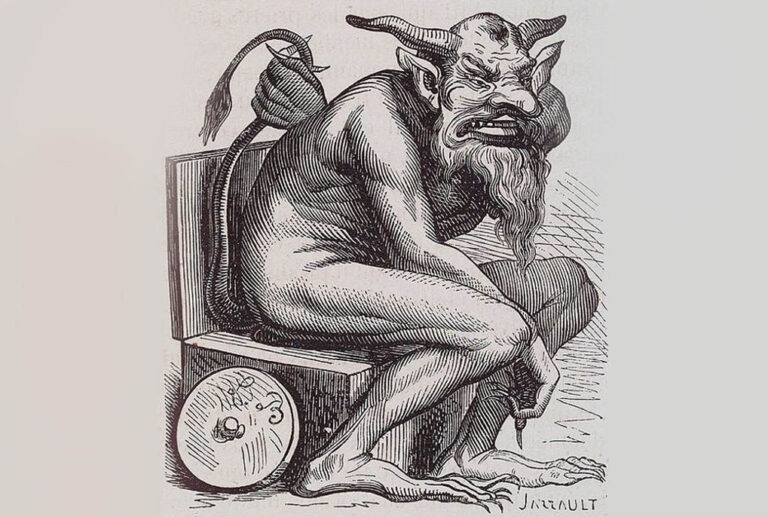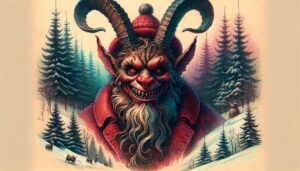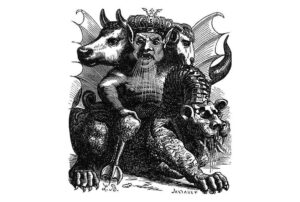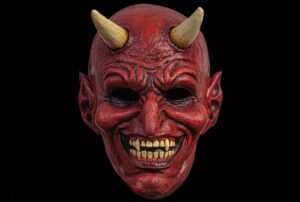Table of Contents
Who is Belphegor?
The origins of Belphegor are unclear, but the demon has been mentioned in various grimoires, religious texts, and folklore throughout history. Belphegor is often represented as a demon with a grotesque and monstrous appearance.
Origin

The origins of the name Belphegor and its association with a demon can be traced to various sources, including religious texts, folklore, and demonological literature. The name itself is thought to have originated from the Moabite god Baal-Peor, mentioned in the Old Testament of the Bible.
In the Bible, particularly in the book of Numbers (Numbers 25:1–9), Baal-Peor is associated with the worship of a false god and the immoral behavior of the Israelites. The name Belphegor is believed to have evolved from the combination of “Baal” and “Phegor.”
As for Belphegor’s association with a demon, this connection is largely found in later demonological traditions and grimoires. In the 16th and 17th centuries, during the Renaissance, there was a surge of interest in demonology and the classification of demons. Various grimoires and occult texts, such as “The Lesser Key of Solomon” and “Dictionnaire Infernal” by Collin de Plancy, contributed to the development of the demonic hierarchy, where Belphegor was often depicted as one of the seven princes of Hell.
History
The historical references to Belphegor are somewhat sparse and often rooted in religious and mythological contexts. The name Belphegor has its origins in the Old Testament of the Bible, specifically in the story of the Moabite god Baal-Peor. In Numbers 25:1–9, the Israelites are said to have engaged in immoral behavior and the worship of false gods, with a particular association to Baal-Peor. The name Belphegor is thought to have evolved from the combination of “Baal” and “Phegor.”
The association of Belphegor with a demon gained prominence in later centuries, especially during the Renaissance. Demonology, the study of demons and demonic entities, became a significant topic during this period. Various grimoires and occult texts, such as “The Lesser Key of Solomon” and “Dictionnaire Infernal,” included Belphegor as one of the seven princes of Hell.
In these demonological traditions, Belphegor was often depicted as a demon associated with seduction, temptation, and the sin of idleness or sloth. The concept of the seven princes of Hell, including Belphegor, contributed to the development of a hierarchical structure for demons.
Over time, Belphegor’s depiction and associations have been shaped by cultural, religious, and literary influences. Different interpretations and variations of Belphegor can be found in various mythologies, folklore, and occult writings.
Modern Influence
In contemporary times, references to Belphegor and similar entities are often found in popular culture, including music, literature, and other forms of entertainment. Some artists, writers, and creators draw on mythological and occult themes to add depth or provoke thought in their work. It’s important to note that these references are often fictional and meant for artistic or entertainment purposes.
For example, in the realm of metal music, the Austrian blackened death metal band Belphegor has adopted the name as their moniker. Their lyrics often explore dark and occult themes, contributing to the band’s overall aesthetic.
In literature, films, and television, characters with demonic or supernatural qualities are common, and sometimes they are inspired by historical or mythological figures, including demons like Belphegor.
It’s crucial to approach these references with an understanding of their fictional and artistic nature. While some creators may draw inspiration from historical or mythological sources, the portrayals are often embellished or adapted to fit the narrative or aesthetic of the work.
How to Pronounce Belphegor?
The pronunciation of "Belphegor" is typically rendered as "bel-feh-gor." Each syllable is pronounced distinctly: "bel" as in "bell," "feh" rhyming with "bet," and "gor" as in "gore." The emphasis is often on the second syllable, "feh."
Why is Belphegor on a Toilet
The context of Belphegor being associated with a toilet likely comes from various pop culture references, especially in art and online communities. It's often used in a humorous or absurd manner, portraying a demon engaged in mundane or unexpected activities, subverting the traditional image of a fearsome demon.





